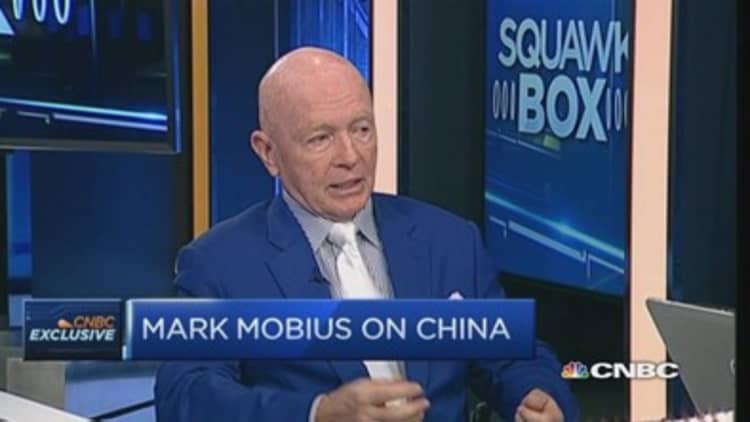China is betting on a massive infrastructure and cross-border trade initiative to cushion the economy as it transitions to a period of slower, more sustainable growth, but experts warn the program could do more harm than good.
Years in the making, the 'One Belt, One Road' (OBOR) initiative is composed of two primary projects: the "Silk Road Economic Belt" and "21st Century Maritime Silk Road," a network of road, rail and port routes that will connect China to Central Asia, South Asia, the Middle East, and Europe. President Xi Jinping hopes the plan will spur more regionally balanced growth as annual gross domestic product hovers at a 24-year low.
However, OBOR is unlikely to resolve Beijing's long-term growth problem as it doesn't address domestic consumption, noted Bank of America Merrill Lynch (BoFAML) in a recent report.
"OBOR tries to export China's savings and import foreign demand, so it represents a continuation of China's old growth model (which had brought China to its current predicament in the first place)," it said.
"We suspect that many local governments may leverage off OBOR for a new round of infrastructure spending…This, while helpful in holding up short-term investment, will delay the long overdue rebalancing toward consumption in China," it added.
Default risks
Some of the countries participating in the OBOR scheme have large current account deficits and unfavorable economic fundamentals, making them high-risk borrowers, BoFAML pointed out. This means Beijing is taking on greater default risk by providing them with capital and financing projects in those nations.

"For example, China swaps for country Z's currency at the current exchange rate. If country Z uses the funds to buy Chinese rail equipment and China doesn't immediately spend currency Z to purchase goods from country Z, China would be exposed to the risk of partial default if currency Z depreciates," the bank said.
Read More'New Silk Road' highlights China's two-speed reform
The Center for Strategic and International Studies (CSIS) agrees. In a note this week, it stated that borrowers' failure to pay back loans, or businesses' inability to recoup their investments could place additional stress on the Chinese economy.
Execution issues
Beijing's past difficulties investing in infrastructure abroad, especially through bilateral arrangements, suggest that the proposed projects could end up "little more than a series of expensive boondoggles," CSIS remarked.
"Given Chinese construction companies' poor track record operating in foreign countries (including frequent mistreatment of local workers), a major increase in the scale of their external activities increases the risk of damaging political blowback that could harm Beijing's image or lead to instability in host countries."
Moreover, there is a clear risk that Beijing's efforts will heighten geopolitical tensions in an already tense region, CSIS added. Expanded Chinese influence throughout Central Asia and South Asia will likely anger major players in those regions, notably Russia and India.

